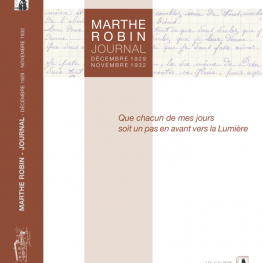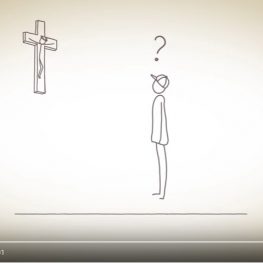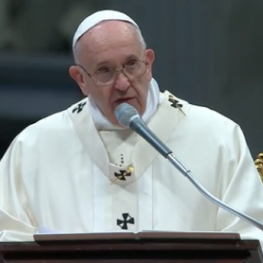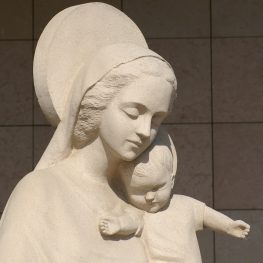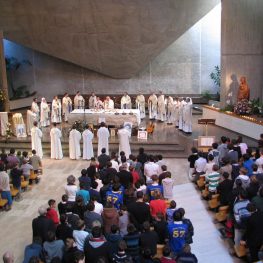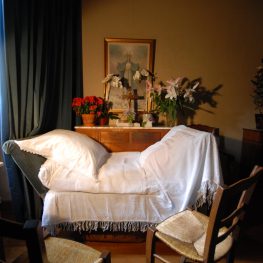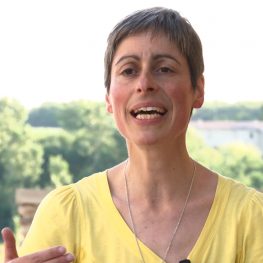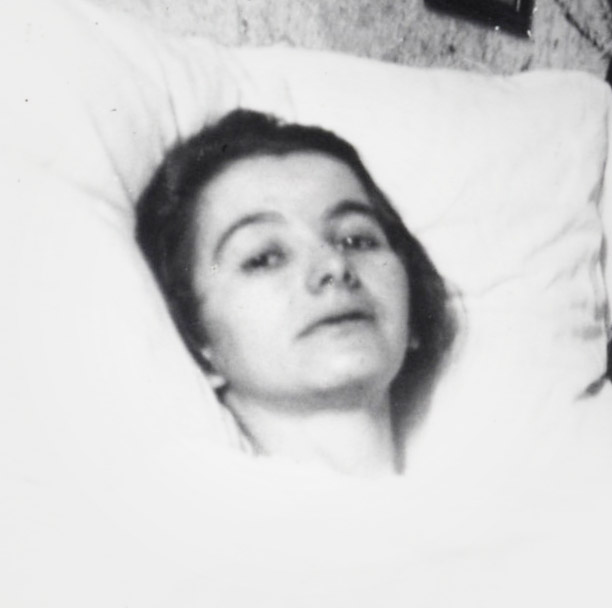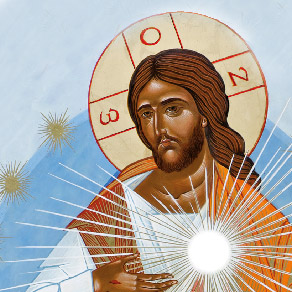Le cheminement intérieur de Marthe Robin est dévoilé grâce à la publication de son "Journal". Découvrez-le en ligne...
Her message
Rekindling the love that is dying out in the world
The deep insights of Marthe Robin have had a profound and lasting effect on the Church. Many of them are part of what the popes later referred to as the "New Evangelisation" a renewed missionary commitment of ordained and lay Christians working together in an increasingly secularised world. To achieve this, the laity must be thoroughly trained in the understanding of the faith, nourished by a dedicated relationship with God through prayer and the sacraments.
"I have chosen you to rekindle the Love that is dying out in the world," said Jesus to Marthe.
The path lived out and proposed by Marthe, which is a path of deep inner reflection and contemplation, is at odds with the frantic and noisy world in which we live. But it would be a mistake to think that Marthe, a disabled woman secluded in an isolated hamlet in the Drôme region, was not fully aware of the noise and turmoil of the 20th century. On the contrary, she had an excellent understanding of what was going on, first of all thanks to the countless visits she received and, secondly, because the pain that was part of her everyday life did not allow her to rest: this aspect of suffering and the resulting fatigue, which was comparable to the fatigue caused by a life of excessive activity and endless noise, is certainly the reason for the deep compassion she felt for those living in the modern world.
"Study and time spent in reflection are required to form convictions"
There can be no doubt that, more than anyone else, Marthe Robin felt the pressing need to extricate herself from everyday life to spend time with the Lord in heart-to-heart conversation, isolated from the world... in order to spread the good news in the world more effectively. This is why she insisted so much on the formation of the laity:

Some people think that they have lost their faith, but it is just buried in the ashes. You need to blow on them to rekindle the flames.
Baptism places a seed that requires intensive care in order to grow:
"We must nurture this inner life, the true life, and increase it constantly, by cultivating and increasing in us the great life of faith and love."
She read a great deal, constantly seeking to understand:
Our faith must be simple and clear, pious and intelligent.
You need to study and reflect in order to form your convictions and the ideas you can rely on, and take the trouble to dig down deep within yourself and your beliefs.
A new Pentecost of love on the world
From as early as 1936, Marthe received the revelation of a "New Pentecost of Love" which was to sweep over the world after a renewal of the Church, and in which the laity would play a very important part. This is the fundamental reason for the founding of the Foyers de Charité. In Marthe's mind, the mission and work of evangelisation must not be exclusively reserved for the priests and religious. Her intuition, which was totally new at the time, was that each baptised person is jointly responsible for the message of the Gospel, which, many years later, Vatican II would refer to as the "universal priesthood of the faithful".
It is through the fruitful relationship between the priest and the laity that a new proclamation of the Gospel will emerge for the world. The Foyers de Charité are nothing else but an expression of this: they are places run by intellectually and spiritually formed lay people under the spiritual direction of a priest, who helps to nurture the natural vocation of the baptised to evangelise the people of God and the world.
Consequently, the priest is not excluded from Marthe's vision. In her prayer, she asked God, "bring forth saints from among your priests so that the saints may also increase in number in the world." It is through the priests that the laity can strengthen and increase their own faith, and it is under their paternal guidance that the people of God will grow and become holy.
Bring forth saints from among your priests so that the saints may also increase in number in the world.
Marthe, apostle of the New Evangelisation
One day, Jean Guitton, the philosopher and member of the Académie Française, asked Marthe how she envisaged the "Pentecost of love" of which she spoke. Her response was enlightening:
"Oh! Nothing in the least extraordinary. I imagine that it will be both slow and silent. I think it will happen little by little. I even think that it has already begun. As for the future, you know that I am quoted as saying many things about the future. I know nothing except the following: that the future is Jesus."
Marthe did not expect this new Pentecost to be an extraordinary and sudden event, but a slow, progressive and almost invisible development, like God's discreet manifestation at Mount Horeb. Under no circumstances is this hope of deep renewal based on a critical or pessimistic perception of the Church. Indeed Marthe was always like a daughter to the Church, totally and unreservedly obedient to the latter. On the contrary, her premonition about the new Pentecost represents a joyful confident expectation.
Many see Marthe Robin as a true Apostle of the New Evangelisation. And even today, what inspires the members of the Foyers de Charité, like the twenty or so new communities that Marthe supported and helped to grow, is the idea that the laity will form islands of holiness which are called to expand more and more until they cover the earth, transforming the world at a very deep level.





